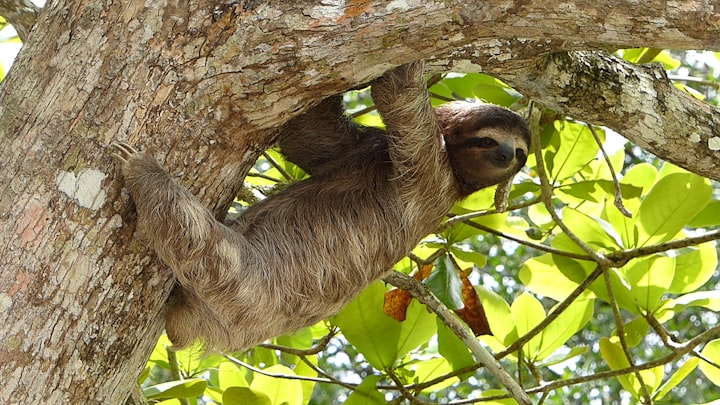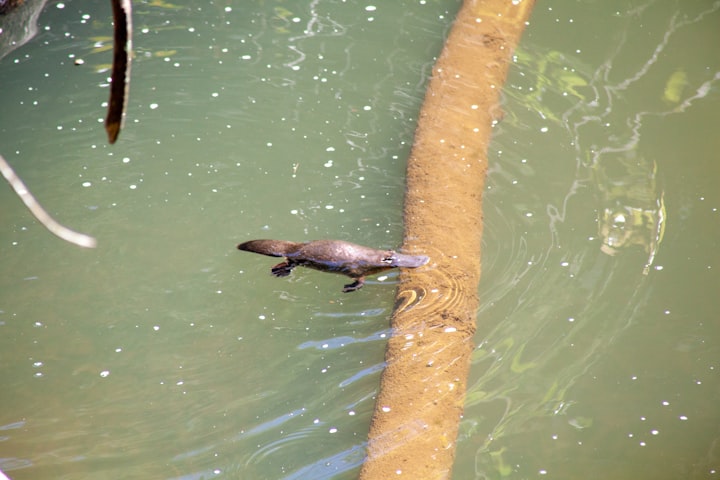
Sloths: Slow but Interesting Creatures
Sloths are one of the most fascinating creatures on Earth. They are slow-moving, tree-dwelling mammals that live in the rainforests of Central and South America. Sloths are known for their unique physical features, including their long claws, shaggy fur, and slow movements. In this article, we will explore the life of sloths, their behavior, and their role in the ecosystem.
Physical Characteristics
Sloths are a unique species that have many interesting physical features. They have a long, shaggy coat of fur that grows in the opposite direction of most other mammals. The fur serves as a habitat for algae, which helps to camouflage the sloth in the trees. The algae also provide nutrients for the sloth, which is important since their diet is low in nutrients.
Sloths are slow-moving animals that spend most of their lives hanging upside down in trees. They have long, curved claws that allow them to grip branches and hang on tightly. Their arms are longer than their legs, which makes them better adapted to life in the trees.
Behavior
Sloths are known for their slow movements, but they are also very deliberate in their actions. They move slowly to conserve energy and avoid predators. Sloths are solitary animals that spend most of their time alone, except during mating season. They communicate with each other through high-pitched calls, which can be heard up to 100 meters away.
Sloths have a unique metabolism that is slower than most other mammals. They have a low body temperature and a slow heart rate, which helps them to conserve energy. Sloths are also able to hold their breath for up to 40 minutes, which allows them to stay submerged in water and avoid predators.
Diet
Sloths are herbivores that eat mainly leaves, buds, and fruits. They have a four-chambered stomach, which allows them to digest tough plant material. Sloths have a slow digestion process that can take up to a month to complete. They also have a low metabolic rate, which means they do not need to eat as often as other animals.
Role in the Ecosystem
Sloths play an important role in the ecosystem. They are a food source for predators such as jaguars, eagles, and snakes. Sloths also help to disperse seeds from the fruits they eat, which helps to maintain the rainforest ecosystem. The algae that grow on their fur provide a habitat for other organisms, such as moths and beetles.
Conservation
Sloths are listed as a vulnerable species by the International Union for Conservation of Nature (IUCN). Their population is declining due to habitat loss, hunting, and the illegal pet trade. Sloths are slow-moving animals that are easy targets for poachers, who sell them as pets or use their body parts for traditional medicine.
To protect sloths, it is important to conserve their habitat and reduce human disturbance in their natural environment. This can be achieved through sustainable forest management, responsible tourism, and education programs that raise awareness about the importance of sloths and their role in the ecosystem.
Conclusion
In conclusion, sloths are fascinating creatures that are well adapted to their environment. Their unique physical features, slow movements, deliberate actions, and slow metabolism make them an interesting subject to study. Sloths also play a crucial role in the rainforest ecosystem, serving as a food source for predators and helping to disperse seeds. However, their population is declining due to human activities such as habitat loss, hunting, and the illegal pet trade. To protect sloths, it is important to conserve their habitat, reduce human disturbance, and raise awareness about their importance. By doing so, we can ensure that these amazing creatures will continue to thrive in the wild for generations to come.
About the Creator
Enjoyed the story? Support the Creator.
Subscribe for free to receive all their stories in your feed. You could also pledge your support or give them a one-off tip, letting them know you appreciate their work.






Comments
There are no comments for this story
Be the first to respond and start the conversation.